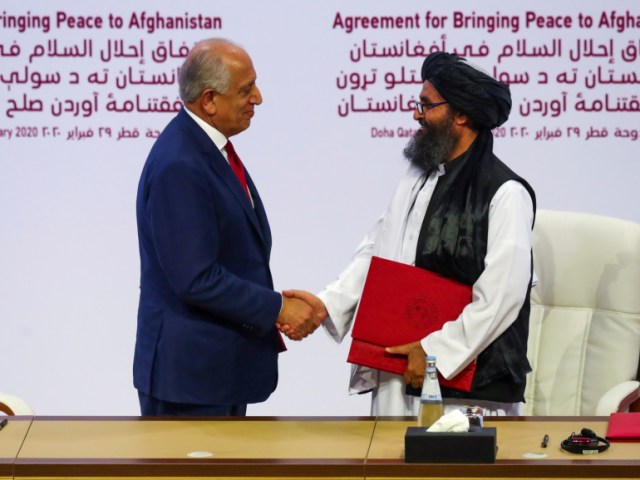Zalmay Khalilzad, the American special envoy to Afghanistan, confirmed in a Tweet on Twitter that during a meeting in the Qatari capital, Doha, with the Taliban political bureau official, Mullah Abdul Ghani Brader, he stressed the economic development opportunities that will follow peace in Afghanistan, as he put it.
Khalilzad added that the two sides agreed that developing peace support plans cannot begin prematurely, assuming that the two sides can remove the final obstacles in the path of negotiations between Afghans.
He said, "The Taliban recognize that all Afghans will have to make concessions in order to attract the required investments in the future to Afghanistan."
The US envoy had met in Doha with Mullah Abdul Ghani Brader, in the presence of Mutlaq Al-Qahtani, representative of the Qatari foreign minister.
The two parties discussed the peace agreement signed between the movement and Washington, the immediate release of prisoners, the start of Afghan-Afghan talks, and related issues.
Reconstruction
The United States and the Taliban this week expressed concern about their agreement signed last February, including over talks between Afghans themselves and the release of 5,000 prisoners.
A Taliban spokesman said - in a statement - that the movement's negotiators had held talks with the CEO of the American Foundation for International Development Finance, Adam Bowler, on "financial growth, reconstruction and development in Afghanistan".
And Washington pledged last February to withdraw its forces from Afghanistan by mid-2021, in exchange for security guarantees in an attempt to pave the way for negotiations between the warring parties.
Under the historic agreement in which the Afghan government did not participate, Washington and the Taliban pledged to stop the mutual attacks.
These talks come as pressure increases on US President Donald Trump because of information talking about rewards from the Russian intelligence services for Taliban fighters, in order to kill American soldiers in Afghanistan.
On Thursday, US House Speaker Nancy Pelosi (of the Democratic Party) called for US sanctions against Russian intelligence, because of this information.
She said that the White House objected to the imposition of sanctions "related to the intelligence and defense sectors" in Russia, in previous legislation passed by the two parties aimed at punishing Moscow.
The Taliban denied that its fighters had received any Russian reward, and Mullah Brader earlier this week reiterated the movement's pledge to refrain from attacking the United States.

